We have asked an expert to share a few tips for travelling by air that will both help to prevent things from going wrong, and make your life easier when they do. Author Mia Clarke’s bio is below.
Travelling via an airline, especially for the first time, can be stressful. You have to make sure that your baggage is in the given weight, that you have all the documents, and that you reach and board the flight on time.
Amidst all the rush and chaos, you can miss a lot of things, and you could face several factors that could delay, or worse, cancel your flight. In such cases, these tips may come in handy and even save you a lot of money.
If you’re a regular air traveller or a first-time flyer, read this guide for some of the best tips you should know before boarding a flight.
5 Tips for travelling by air
- Download and use the airline app
- Handling a cancelled or delayed flight
- Avoid the peak crowd, if possible
- Measure your baggage at home
- Pack the essentials in the carry-on
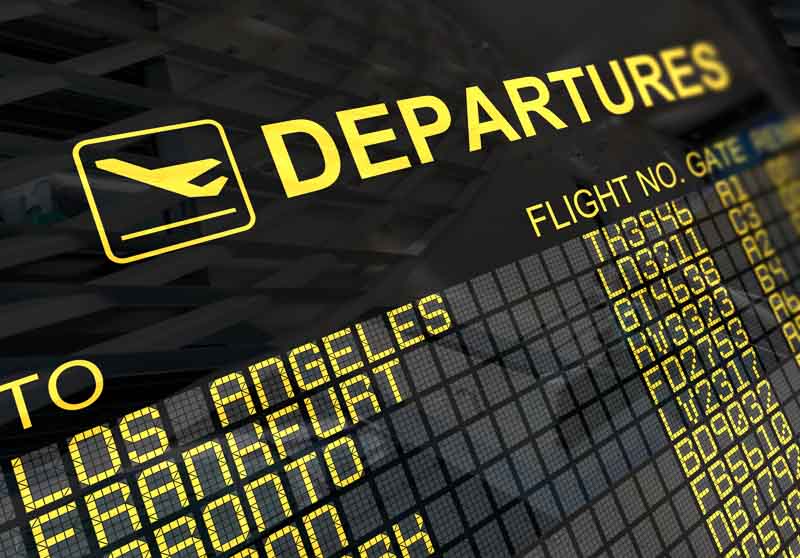
Download and use the airline app
In this digital age, you can cut the rush and mark your presence for your flight from your home. If you’re not carrying luggage with you, you can log in on the airline’s app and check-in from there before reaching the airport.
This way, you can go right to the security check. As a result you will avoid the long queues in front of the check-in counters.
If you have luggage, you can check to see if your airline has luggage drop-off sites. You can also check-in online with luggage and drop them off at the designated site.
Most airlines have apps today, and other than checking in, you can take advantage of several features. You can see the route of your flights on the app and the exact moment they will reach the airport.
This way, you will be aware of your flight’s potential delay or cancellation.
Make sure to always check the airline’s app before going to the airport. It will save you the hassle and a lot of time and effort.
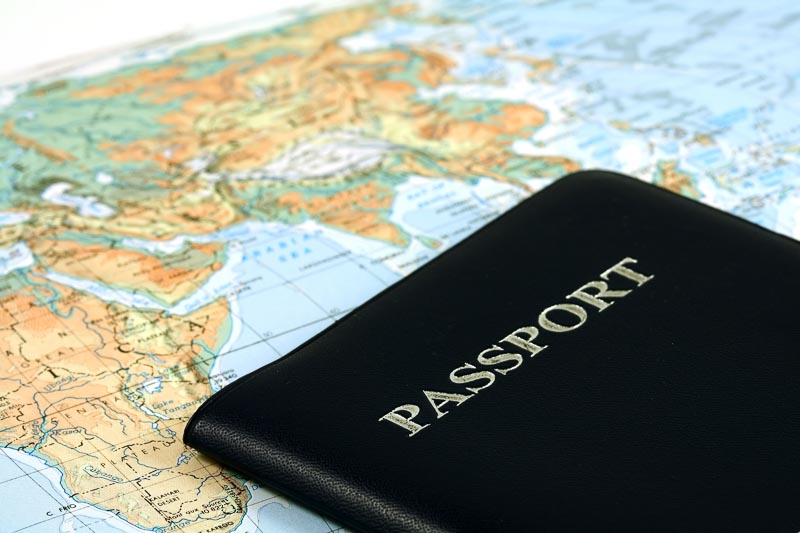
Handling a cancelled or delayed flight
If your flight gets cancelled or delayed, don’t panic.
You can work around delays and cancellations.
Most airlines offer compensation and refund for flight cancellations and delays if the cause was the flight itself. You can claim that refund while waiting at the airport or later at the helpline. However, it is no easy feat to get that refund out of the pockets of airlines.
Some organizations, like Air Advisor, can help you claim and get your refund check from specific airlines. If you’re travelling with TUI airline, and your flight gets delayed or cancelled, you could be eligible to get up to 600 euros in compensation.
You can get TUI flight delay compensation with the help of Air Advisor. They will help you through the process and charge a small fee when they succeed in getting your refund. This will save you long hours of arguments with the customer helpline.
Know your passenger rights and save the right numbers to contact on your phone.
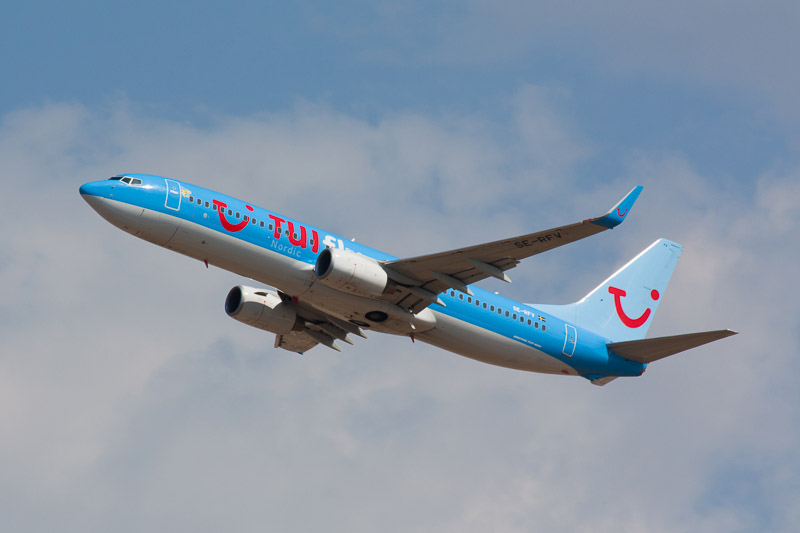
Avoid the peak crowd, if possible
Some days, hours, and times of the year are considered peak hours for travel. If you are caught boarding a flight during these times, you will have a high chance of suffering long wait lines and navigating the airport full of people.
However, if you know the peak hours and days, you can save yourself from getting caught in those times by scheduling your flight at different times.
According to stats, Monday mornings and Friday afternoons are the busiest times for flights. This is because most business travels take place during these hours.
Friday is also a generally busy time for most recreational flights.
Thanksgiving day and the Sunday after that are generally two of the busiest days of the year. Plus, the week between Christmas and New Year’s eve is mapped out to be the time of the year with the most influx of flights.
Make sure to schedule your flight with ample time in between. Try to avoid the busy days and weeks so you can board the flight smoothly.
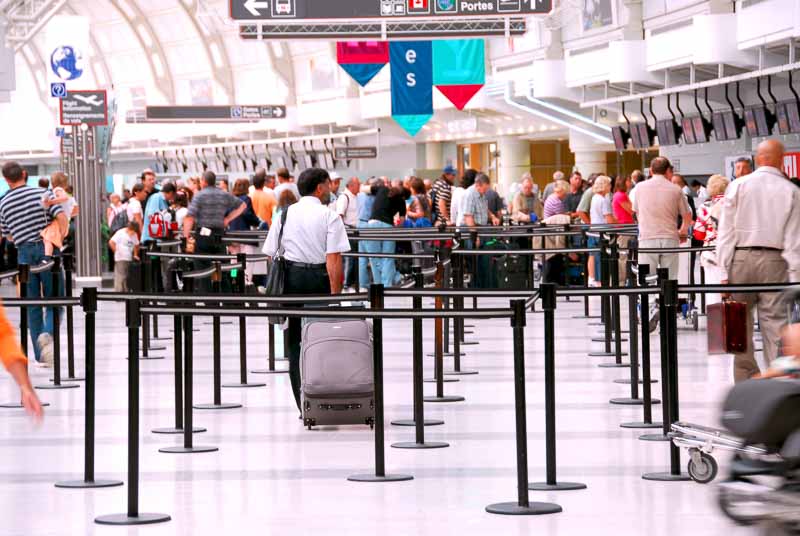
Weigh and measure your baggage at home
You should always weigh and measure well your baggage at home before the flight. Measure and weigh not only the checked suitcases but also the carry-ons. Each airline will have a certain weight limit for your luggage.
If you go over, you will have to adjust the baggage at the airport. It will be a hassle if you came to the airport alone and have no one to take back the items you removed. You will have to leave behind the things if you have no space in your carry-on or pay an extra amount which can sometimes be a big sum.
Before you leave for the airport, make sure to measure and weigh your baggage and the carry-on and cross-check it with the weight allowed by your flight.
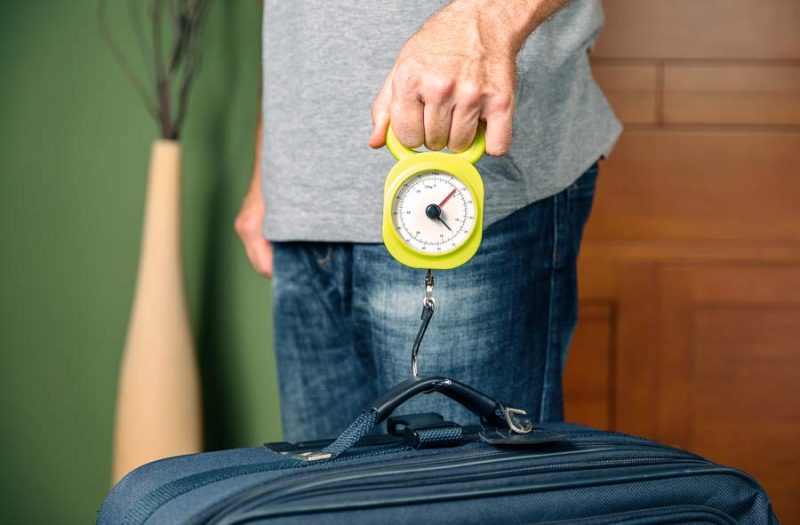
Pack the Essentials in the Carry-On
Always carry your essential items in the carry-on.
If your flight gets delayed, you might have to wait at the airport for a long time. You will panic less if you have your essential items, such as medicine and basic toiletries, with you ready for use.
Some of the essential items to consider bringing in your carry-on include the phone charger, earphones, medicines, toiletries, and a change of clothes.
If you’re travelling overseas, make sure to have a pen in your carry-on. You might have to fill out some immigration forms on the flight, and it will save you and the attendant a lot of time and effort.
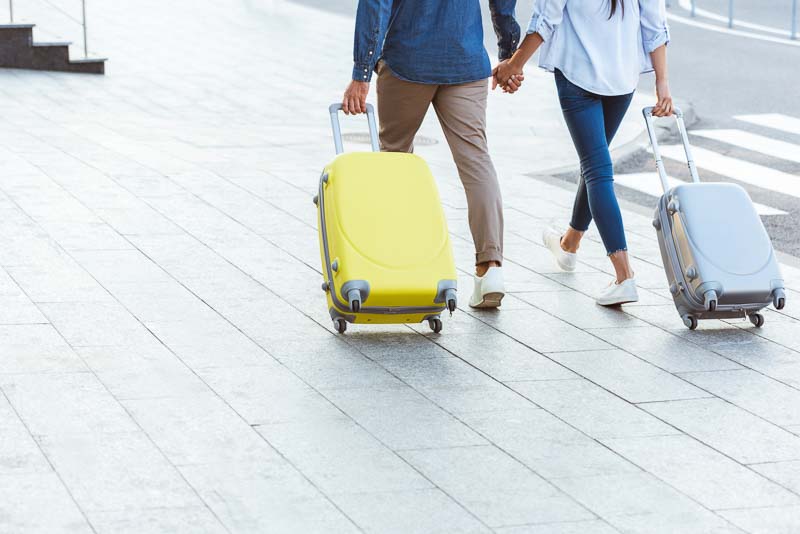
Final thoughts on these tips for travelling by Air
One more bonus tip for you is to get a travel credit card if you travel regularly. Some of them do have hefty price tags, but they come with several benefits like travel and flight delay insurance, baggage claim compensation for lost luggage, VIP lounge access, and more.
Remember, it is better to be early than to be late with everything, whether it is booking flights, getting to the airport, or packing the luggage. For most people, last-minute struggles can cause anxiety. So, plan, research, and do things early.
You might also like
Do you have any tips for travelling by air to add to our list?
About the author

Mia Clarke is a freelance travel writer and works as a digital outreach manager for various international brands – currently for Air Advisor. When Mia is not researching and writing, she loves nothing more than heading out into the country for some downtime.
Photo Credits:
All photos on this page are either shot by our team and watermarked as such or stock images from Depositphotos.

Leave a Reply